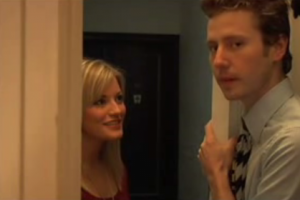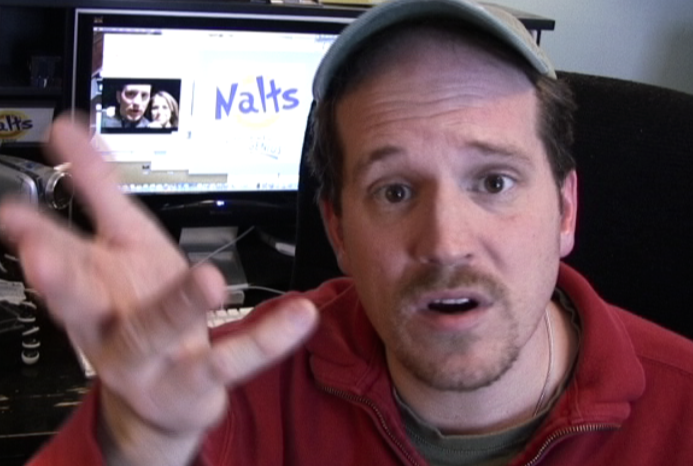 “What’s it like? Having all those people watch you and comment on your life,” iJustine asks iChannel‘s “i,” in one of the last episodes since the show went on hiatus in May after 40 episodes. “It sucks,” he replies. “From what I hear there are people that do this voluntarily.”
“What’s it like? Having all those people watch you and comment on your life,” iJustine asks iChannel‘s “i,” in one of the last episodes since the show went on hiatus in May after 40 episodes. “It sucks,” he replies. “From what I hear there are people that do this voluntarily.”
The irony, of course, is that iJustine really does broadcast her life, while the iChannel storyline revolves around a regular guy whose entire life is being monitored on the Internet via video… without his consent. It’s a modern “The Truman Show,” but the fans comment and interact with the plot.
Why is this topical again? Newsweek wrote recently that Joel Gold, director of psychiatrics at New York’s Belleveue Hospital, has noticed a new sort of paranoia: “young white men who believed they were the subjects of their own reality-TV shows.”
Out, folks, are the vintage paranoias: thinking the KGB is monitoring you, or that Al Queda is after you. What’s vogue in abormal psychology is reality-TV show delusions. One guy, described in Gold’s preliminary paper, climbed the Statue of Liberty, believing that he’d be reunited with his high-school girlfriend at the top, and finally be released from the “show.”
“If you have a predisposition to paranoia, going on YouTube and seeing some guy doing something can really shake you up,” says Gold.
That’s so weird. Hold on a second. I have to put on my Nalts hat and add a key light to me. There I’m back. What was I typing and why are you reading my e-mail?

